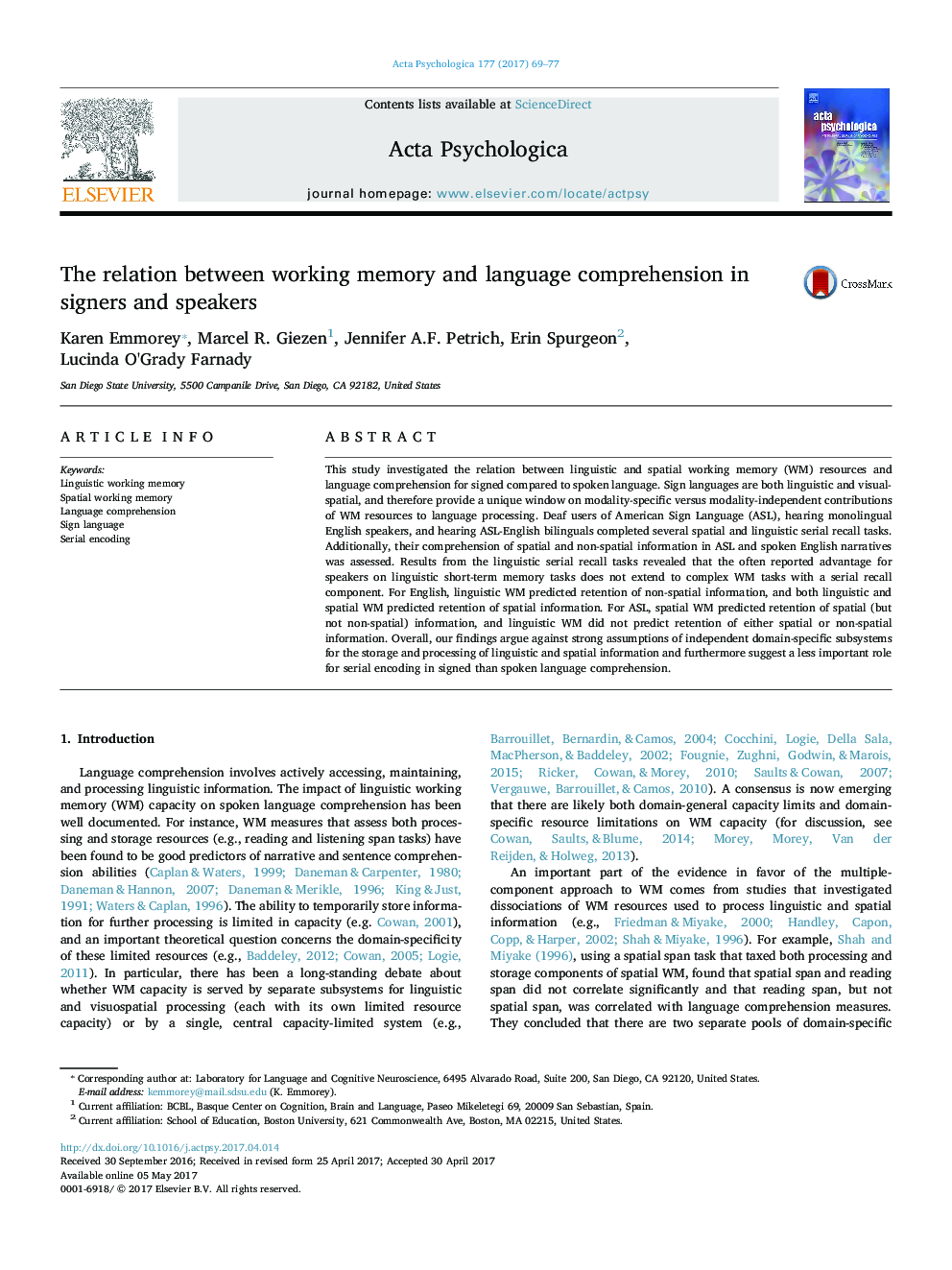| Article ID | Journal | Published Year | Pages | File Type |
|---|---|---|---|---|
| 5040273 | Acta Psychologica | 2017 | 9 Pages |
â¢Serial recall advantage for speakers is limited to linguistic short-term memory tasks.â¢Signers rely less strongly on serial encoding in language processing than speakers.â¢Speakers and signers engage spatial WM resources when processing spatial language.â¢Signers do not show advantages in visual-spatial WM regardless of hearing status.
This study investigated the relation between linguistic and spatial working memory (WM) resources and language comprehension for signed compared to spoken language. Sign languages are both linguistic and visual-spatial, and therefore provide a unique window on modality-specific versus modality-independent contributions of WM resources to language processing. Deaf users of American Sign Language (ASL), hearing monolingual English speakers, and hearing ASL-English bilinguals completed several spatial and linguistic serial recall tasks. Additionally, their comprehension of spatial and non-spatial information in ASL and spoken English narratives was assessed. Results from the linguistic serial recall tasks revealed that the often reported advantage for speakers on linguistic short-term memory tasks does not extend to complex WM tasks with a serial recall component. For English, linguistic WM predicted retention of non-spatial information, and both linguistic and spatial WM predicted retention of spatial information. For ASL, spatial WM predicted retention of spatial (but not non-spatial) information, and linguistic WM did not predict retention of either spatial or non-spatial information. Overall, our findings argue against strong assumptions of independent domain-specific subsystems for the storage and processing of linguistic and spatial information and furthermore suggest a less important role for serial encoding in signed than spoken language comprehension.
